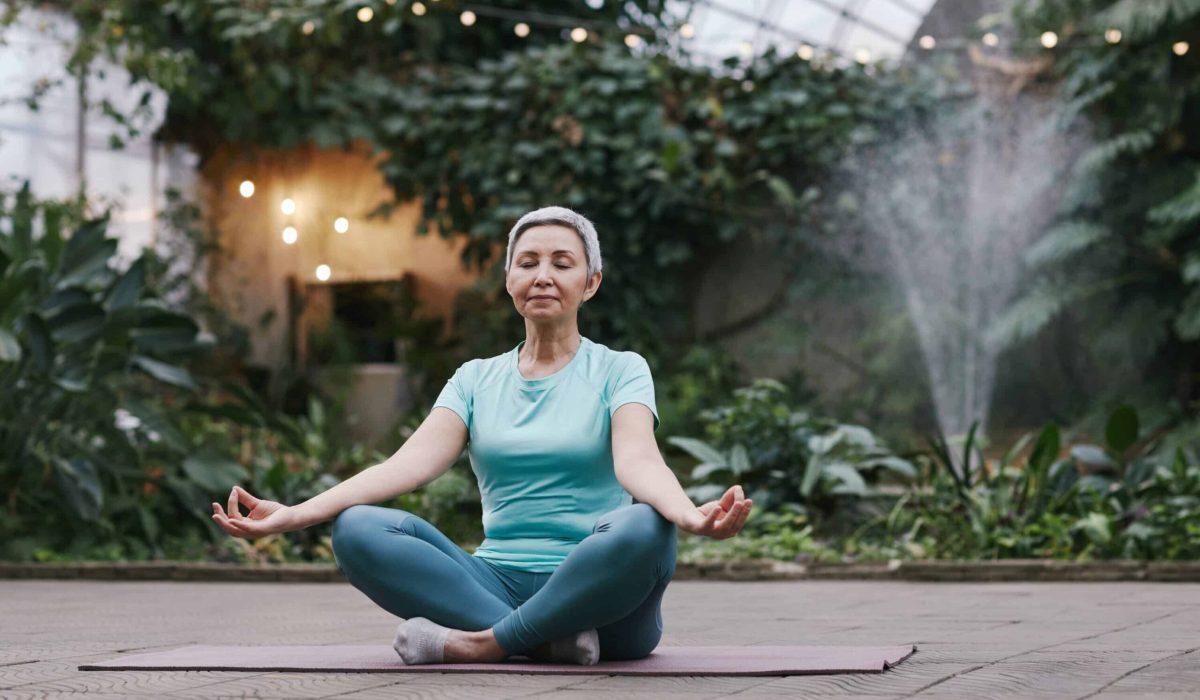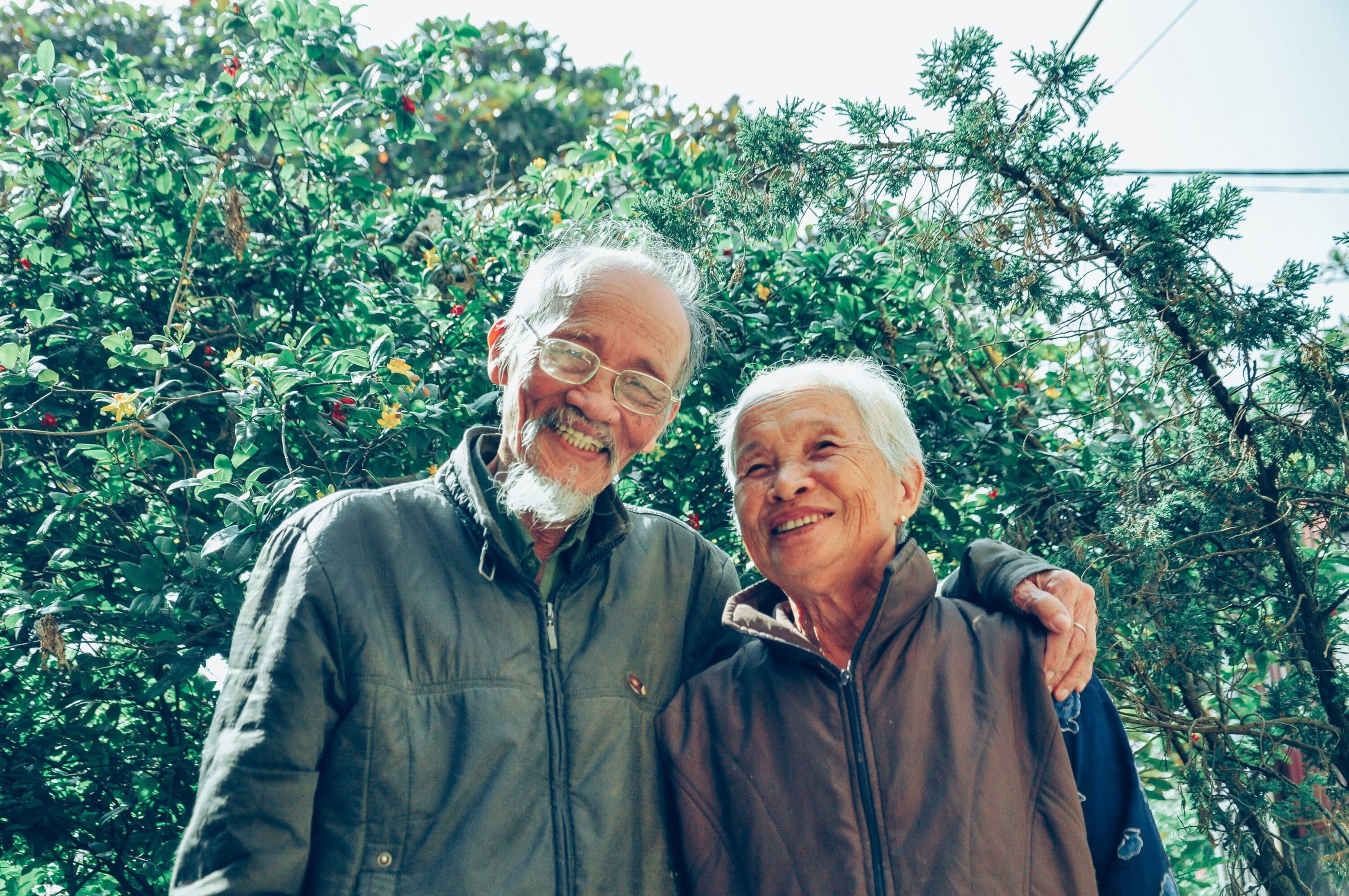Navigating Mental Health in Australia’s Older Adults

As we step into the golden years, our mental wellbeing becomes as crucial as our physical health. In Australia, the conversation around mental health in older adults is gaining momentum, shedding light on the unique challenges and needs of this demographic. It’s essential to acknowledge and address these issues as they can significantly affect quality of life during retirement.
Mental health encompasses a broad spectrum, from managing the emotional impact of transitioning into retirement to coping with the loss of loved ones or the onset of age-related conditions. In today’s society, where the population of older Australians is growing, it’s vital to equip ourselves with the knowledge and resources to navigate this path with confidence and support.
In this post, we’ll discuss the importance of maintaining robust mental health for older adults in Australia. We’ll delve into common psychological hurdles and offer insights into fostering a resilient mindset. Whether you’re approaching retirement or are already enjoying your post-work years, understanding how to keep your mental health in check is a key component for a fulfilling and vibrant third act.
CONTENT
The Importance of Mental Health Awareness in Retirement
As we approach retirement, the importance of mental health awareness cannot be overstated. Retirement marks a significant life transition, and with it comes a host of emotional and psychological adjustments. It’s crucial for individuals to be aware of the potential impact on their mental well-being and to actively take steps to support and nurture their mental health during this time. By raising awareness about the importance of mental health in retirement, we can empower individuals to seek help when needed and reduce the stigma surrounding mental health issues in later life.
In retirement, mental health awareness takes on added significance due to factors such as reduced social interaction, changes in routine, and the potential for feelings of isolation. It’s essential for retirees and those approaching retirement to recognise that mental health is just as important as physical health. Being aware of the signs and symptoms of mental health challenges, such as anxiety, depression, or cognitive decline, can help individuals take proactive measures to maintain their well-being. By prioritising mental health awareness, retirees can improve their overall quality of life and find joy and fulfilment in their new stage of life.
By promoting mental health awareness in retirement, we can create a supportive environment where individuals feel comfortable discussing their mental health challenges. Encouraging open and honest conversations about mental well-being can help break down the barriers to seeking help and support. It also fosters a culture of empathy and understanding, where retirees can feel validated in their experiences and be empowered to take positive steps toward maintaining their mental health.

Addressing the Stigma Surrounding Mental Health in Seniors
Addressing the stigma surrounding mental health in seniors is a crucial step toward creating a supportive and empathetic environment for older adults in Australia. Despite the progress made in understanding mental health, the stigma surrounding it persists, especially in older generations. This stigma can lead to feelings of shame, guilt, and reluctance to seek help. By addressing this stigma head-on, we can create a culture of openness and understanding, where seniors feel empowered to prioritize their mental well-being and seek the support they need without fear of judgment.
One of the common misconceptions contributing to the stigma surrounding mental health in seniors is the belief that it’s a natural part of aging to experience mental health challenges. It’s essential to dispel this myth and emphasize that mental health issues are not inevitable consequences of aging. By challenging this misconception, we can affirm that seeking help for mental health concerns is a sign of strength and self-care, rather than a sign of weakness.
Additionally, addressing the stigma surrounding mental health in seniors involves promoting education and awareness about mental health conditions. By providing accurate information about the causes, symptoms, and treatment options for mental health issues, we can help seniors and their families understand that these challenges are valid and deserving of attention. Open conversations and community support can also play a significant role in reducing stigma and creating an environment where seniors feel comfortable seeking the support they need for their mental well-being.
Common Mental Health Conditions Affecting Older Australians
The mental health landscape for older Australians is multifaceted, with several common conditions that can impact their well-being. Depression is one of the most prevalent mental health issues affecting this demographic, often stemming from factors such as health concerns, loneliness, or the loss of loved ones. Anxiety is another common challenge, with older adults facing worries about their health, finances, and the future. Additionally, cognitive impairment, including conditions such as dementia, presents a significant concern for many seniors and their families. By understanding these common mental health conditions, individuals and caregivers can take proactive steps to address and manage them effectively.
Isolation and loneliness are key contributors to mental health conditions among older Australians. As social networks change and individuals may experience the loss of friends or family members, the risk of isolation and feelings of loneliness can increase. This, in turn, can exacerbate the impact of existing mental health conditions or lead to the development of new ones. Grief and loss are also prevalent among older Australians, and the emotional strain of mourning and adjusting to life changes can have a profound effect on mental well-being.
Moreover, age-related changes, such as declining physical health and cognitive function, can sometimes lead to feelings of frustration, hopelessness, and loss of identity. As older Australians navigate these changes, they may face mental health challenges that require tailored support and understanding. By recognising and addressing these common mental health conditions affecting older Australians, we can work towards ensuring that necessary resources and assistance are accessible to the senior community, promoting a better quality of life in their later years.

The Role of Social Connections in Senior Mental Well-being
Social connections play a pivotal role in supporting the mental well-being of seniors in Australia. Maintaining meaningful relationships and social interactions is essential for fostering a sense of belonging, purpose, and emotional support. For many older adults, social connections provide a source of joy, companionship, and the opportunity to share experiences and wisdom, all of which can contribute to a positive outlook on life. Research has shown that strong social ties are associated with better mental and physical health outcomes, highlighting the significance of social connections in the lives of seniors.
Moreover, social engagement can serve as a protective factor against loneliness, isolation, and depression, which are common challenges faced by older individuals. By participating in social activities, group gatherings, or community events, seniors have the opportunity to combat feelings of solitude and maintain a sense of community. Meaningful interactions with family, friends, and peers can offer emotional support, encouragement, and a sense of connectedness, which are vital for sustaining mental well-being.
In addition, the role of social connections extends beyond emotional support and companionship. It also provides opportunities for cognitive stimulation, learning, and personal growth. Engaging in discussions, sharing stories, and participating in group activities can promote mental agility, creativity, and a sense of purpose. By fostering social connections, seniors can continue to expand their social networks, learn new skills, and stay mentally active, contributing to their overall mental well-being and quality of life during retirement.
Stress Management Techniques for a Peaceful Retirement
Stress management is an essential aspect of achieving a peaceful and fulfilling retirement. As individuals transition into this new phase of life, they may encounter unique stressors related to financial changes, health concerns, and adjustments in routine. It’s important for retirees to adopt effective stress management techniques to promote emotional well-being and maintain a sense of tranquility. By developing strategies to cope with stress, retirees can cultivate a peaceful mindset and embrace the opportunities that retirement brings.
Mindfulness and relaxation techniques are valuable tools for managing stress in retirement. Practices such as meditation, deep breathing exercises, and yoga can help calm the mind, reduce anxiety, and promote a sense of inner peace. By incorporating these practices into their daily routine, retirees can create a space for reflection, self-care, and relaxation, enabling them to navigate life’s challenges with a greater sense of calm and resilience.
Furthermore, maintaining a balanced lifestyle that prioritises self-care, healthy habits, and leisure activities can aid in managing stress during retirement. Regular physical exercise, a nutritious diet, and adequate sleep can contribute to overall well-being and help individuals better cope with stress. Engaging in hobbies, creative pursuits, and recreational activities that bring joy and fulfilment can also serve as effective stress management techniques. By fostering a lifestyle that promotes relaxation, enjoyment, and self-nurturing, retirees can create a foundation for a peaceful and harmonious retirement.

Physical Activity: A Pathway to Improved Mental Health
Engaging in regular physical activity presents a powerful pathway to improved mental health for older Australians. Exercise has been shown to have numerous benefits for mental well-being, including reducing the risk of depression, alleviating anxiety, and enhancing overall mood. By incorporating physical activity into their daily lives, seniors can experience improved cognitive function, increased energy levels, and a greater sense of well-being. This emphasis on physical activity not only benefits mental health but also contributes to the maintenance of physical strength and mobility, contributing to an overall sense of vitality and wellness.
Physical activity presents an opportunity for seniors to participate in activities that they enjoy, enabling them to stay active while pursuing hobbies or pastimes that bring them happiness. Whether it’s taking brisk walks, engaging in yoga or tai chi, or participating in group fitness classes, the versatility and variety of physical activity options allow seniors to find an exercise routine that aligns with their preferences and abilities. The social component of physical activity also provides opportunities for connection, camaraderie, and a sense of community, as seniors bond over shared interests and objectives.
Moreover, the impact of physical activity on mental health goes beyond immediate effects, as it can contribute to a sense of accomplishment, improved self-esteem, and a positive outlook on life. Setting and achieving fitness goals, feeling a sense of mastery over physical challenges, and experiencing the rush of endorphins during exercise can all nurture mental well-being. By recognising physical activity as a pathway to improved mental health, seniors can integrate movement and exercise into their daily routine, reaping the rewards of enhanced mental and emotional wellness in their retirement years.
Nutrition’s Impact on Psychological Health in the Elderly
Nutrition plays a pivotal role in influencing the psychological health of the elderly, with the foods we consume directly impacting overall mental well-being. A balanced and nutritious diet supports brain health, cognitive function, and emotional stability, providing essential nutrients that contribute to a positive outlook and improved mental health. By prioritising a diet rich in fruits, vegetables, whole grains, lean proteins, and healthy fats, seniors can support their psychological health and reduce the risk of mental health issues such as depression and anxiety.
Certain nutrients have been linked to mental well-being, with studies highlighting the importance of omega-3 fatty acids, vitamin B12, folate, and antioxidants in supporting cognitive function and emotional resilience. By incorporating foods such as fatty fish, leafy greens, nuts, seeds, and berries into their diet, seniors can nourish their brain and body, promoting a sense of vitality and mental clarity. Additionally, staying hydrated is essential for cognitive function and mood regulation, making it important for seniors to maintain adequate fluid intake to support their overall psychological health.
Furthermore, the act of preparing and sharing meals can have a positive impact on mental well-being, fostering a sense of connection, warmth, and enjoyment. Cooking and eating together can provide opportunities for social interaction, creativity, and the pleasure of savoring delicious and nutritious meals. By viewing nutrition as a fundamental component of psychological health in the elderly, seniors can adopt a holistic approach to their well-being, harnessing the power of wholesome foods to support their mental and emotional vitality during retirement.

Brain Health Strategies to Combat Cognitive Decline
Combatting cognitive decline is a priority for many seniors, and implementing brain health strategies can significantly contribute to maintaining cognitive function as they age. Engaging in mentally stimulating activities, such as puzzles, crosswords, and memory games, serves as an effective way to keep the brain sharp and agile. These activities challenge the mind, promote cognitive flexibility, and support memory retention, offering meaningful opportunities for mental stimulation and activity.
In addition to puzzles and games, learning new skills or hobbies can also serve as valuable brain health strategies. Whether it’s playing a musical instrument, studying a new language, or exploring a creative pursuit, engaging in novel activities can bolster cognitive function and stimulate neural connections. These endeavors provide mental challenges, promote adaptability, and encourage ongoing neural growth, contributing to the preservation of cognitive abilities and mental acuity.
Moreover, promoting an active lifestyle that includes regular physical exercise can benefit brain health by improving blood flow, reducing the risk of vascular issues, and supporting overall cognitive vitality. Physical activity has been linked to enhanced cognitive function, improved memory, and a reduced risk of cognitive decline. By incorporating brain health strategies such as mental stimulation and physical activity into their daily routine, seniors can take proactive steps to combat cognitive decline and preserve their cognitive abilities, fostering a sense of empowerment and self-care as they age.
Navigating Grief and Loss in Later Life
It’s natural for individuals in later life to encounter grief and loss, whether it’s related to the passing of loved ones, changes in health, or transitions in family dynamics. Navigating these experiences requires a compassionate and understanding approach, as grieving in later life presents its own set of emotional complexities. Acknowledging and processing feelings of grief is an essential step in the healing process, and it’s important for seniors to have the space and support to express their emotions and work through their grief in their own time and manner.
Support systems, such as counselling, bereavement groups, and social connections, play a crucial role in helping seniors navigate grief and loss. These avenues provide opportunities for individuals to share their experiences, seek comfort, and receive empathetic support from others who understand and can offer solace. Having a compassionate support network can alleviate feelings of isolation and sorrow, empowering seniors to navigate their grief journey with a sense of understanding, companionship, and hope for healing.
Furthermore, self-care practices and coping strategies can aid in the process of navigating grief and loss in later life. Engaging in activities that bring comfort, solace, and moments of joy can serve as a balm for the heart during times of bereavement. Whether it’s spending time outdoors, pursuing creative expressions, or engaging in spiritual practices, incorporating these nurturing activities into their routine can offer seniors a sense of resilience, peace, and emotional healing. By recognising the significance of coping with grief and loss in later life, seniors can find strength in their ability to adapt, grow, and honour the memories of those they have lost, fostering a sense of reverence for their journey of healing.

Understanding and Accessing Mental Health Resources
Understanding and accessing mental health resources is essential for older Australians, as it can provide valuable support and assistance in addressing mental health challenges. One of the first steps in this process is to gain knowledge about the mental health services and resources available in the local community. This may include mental health helplines, support groups, counselling services, and educational programs that cater specifically to the needs of older adults. By familiarising themselves with the available resources, seniors can make informed decisions about seeking the support that best suits their individual circumstances.
Moreover, healthcare professionals, including GPs and mental health specialists, are valuable sources of information and guidance when it comes to accessing mental health resources. Seniors can discuss their concerns and receive recommendations for appropriate mental health services, treatment options, and support networks from these professionals. Building a collaborative and trusting relationship with healthcare providers can provide seniors with the assurance and direction to take proactive steps in managing their mental well-being.
In addition to formal mental health services, technology and online platforms offer a wealth of mental health resources that are easily accessible to older Australians. Telehealth services, mental health apps, and reputable websites provide information, self-help resources, and remote counselling support, enabling seniors to access assistance from the comfort of their own home. By exploring these digital resources, seniors can find convenient and tailored support that complements their individual needs and preferences, contributing to a more holistic approach to mental health management.
How Family and Community Can Support Senior Mental Health
Family and community support play a vital role in promoting the mental health and well-being of older Australians. Engaging in open and empathetic communication with family members creates an environment where seniors feel understood, validated, and supported in their mental health journey. By maintaining strong connections with loved ones, seniors can benefit from the emotional warmth, sense of belonging, and reassurance that comes from having a supportive network to turn to in times of need.
Furthermore, involving family members in activities that promote well-being, such as regular social outings, shared hobbies, and meaningful conversations, fosters a sense of connection and joy, contributing to positive mental health. By creating opportunities for quality time and bonding, families can uplift the spirits of seniors and reinforce a sense of emotional connectedness, which is crucial for mental well-being.
In addition to family support, community engagement and involvement in local groups, clubs, and activities can have a profound impact on senior mental health. Participating in community events, volunteering, or joining interest-based groups provides opportunities for social interaction, a sense of purpose, and exposure to diverse perspectives and experiences. These connections within the community can help combat feelings of isolation, promote a sense of belonging, and offer a supportive network of peers who share common interests and values, thereby contributing to improved mental well-being for older Australians.

Embracing Positivity and Purpose in Your Senior Years
Embracing positivity and purpose in your senior years is an empowering approach that can greatly enhance mental well-being and overall life satisfaction. Cultivating a positive mindset involves recognising moments of joy, gratitude, and contentment, and actively seeking opportunities to engage in activities that bring fulfilment. By adopting a positive outlook, seniors can navigate life’s challenges with resilience and optimism, finding meaning in everyday experiences and nurturing a sense of emotional well-being.
Rediscovering purpose in one’s senior years is instrumental in fostering a sense of vitality and engagement with life. Whether it’s through pursuing a long-held passion, volunteering for a cause they care about, or taking on mentorship roles, seniors can find purpose in contributing to their communities, sharing their wisdom, and making a meaningful difference. Establishing personal goals, staying curious, and exploring new opportunities for growth and learning are all avenues for seniors to embrace purpose and establish a sense of vitality and meaning in their senior years.
Moreover, remaining socially connected and actively engaged in family, friend circles, and broader community networks can provide a profound source of positivity and purpose. Meaningful relationships, opportunities for shared experiences, and contributing to the well-being of others all contribute to a sense of fulfillment and purpose. By fostering these connections and embracing positivity, seniors can enrich their lives and find an enduring sense of joy, contentment, and purpose in their senior years.
Conclusion
In the vibrant tapestry of retirement, mental well-being stands as a cornerstone of fulfilling and enriching later years. By understanding the impact of mental health conditions, the role of social connections, and the significance of positive and purposeful outlooks, older Australians can navigate the journey of retirement with resilience and vitality. Accessing mental health resources, embracing community and family support, and adopting holistic approaches to well-being can empower seniors to lead lives of emotional strength, connection, and joy. As we embrace the complexities and opportunities of this phase of life, prioritizing mental health becomes a pathway to a retirement characterized by thriving mental well-being and a deep sense of fulfillment.






